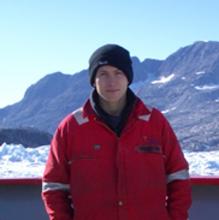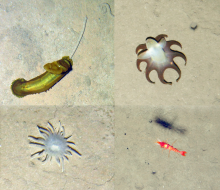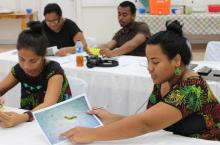Both Kiribati and Tonga have recently passed Seabed Minerals Acts (Kiribati in 2017, and Tonga in 2014) to regulate deep-sea mining activities in their national and international waters. Both states are also in the process of developing Deep-Sea mining policies and national environmental management strategies for mining. However, they lack information on their deep-water environments and capacity for the evaluation of environmental impacts assessments from project proponents and environmental management of deep-sea mining activities, all of which are essential for improving the sustainability of this industry.
Sustainable management of mining is vital to minimise impacts of mining on marine resources, including biodiversity, ecosystem functions and valuable ecosystem services, such as fishing and supporting a tourism industry. Sustainable management is also a key part of both countries commitments to international initiatives, such as the UN sustainable development goals.
This project targets two critical gaps for the beneficiary nations: (i) the availability of baseline data, and (ii) in-country environmental capacity. Both aspects are important for ensuring sustainability is considered in the developing national deep-sea mining policies, pro-active state-sponsorship of mining in international waters, effective evaluation of planned mining projects and in ensuring environmental issues are included in developing national marine spatial planning initiatives.
Training and information provided through this project has supported the governments of Kiribati and Tonga in enabling sustainable marine mineral exploration activities underpinned by robust and science-based regulations, leading to significant positive economic and societal benefits. The practical experience and data gained has supported the development of their draft mining policy and helped with the implementation of regulations that support the main Seabed Minerals Acts. This includes the new regulations for environmental management and marine scientific research in Kiribati, and will result in an improved policy framework for deep-sea mining activities that will benefit both states by improving the sustainability of deep-sea mining.
Outputs
- Baseline Data for Deep-sea mining in Kiribati report provided to the Ministry of Fisheries and Marine Resources Development that outlines the key issues for baseline surveying and provides recommendations on strategic areas for short to medium focus.
- Analysis of deep-sea imagery available in the region provided by industrial stakeholders enabling initial observation and characterisation of the abyssal megafauna communities within their Exclusive Economic Zones (EEZ) and the Clarion Clipperton Zone (CCZ) where deep-sea mining operations are planned.
- In country stakeholder training workshops conducted in Kiribati and Tonga on Deep-Sea Environmental Assessment.
- Input and recommendations made to the Governmental Licence for Foreign Prospecting/Marine Scientific Research Vessels to operate in the EEZ of the Republic of Kiribati.
- Training on and production of cadastral maps used by governments for marine licensing and spatial planning.
Workshops
- Environmental Resource Management (February 2019; Tonga). Training on the status of ecological research within the Clarion Clipperton Zone and building capacity in ecological baseline data acquisition strategy and environmental assessment. https://www.youtube.com/watch?v=lgAX2SgbNtw
- Environmental Resource Management (November 2018; Kiribati). Training workshop on the management of ocean resources and marine spatial planning to support the implementation of Kiribati’s new Seabed Minerals Policy. Included presentation of ecological information on Kiribati’s abyssal seafloor, capacity building in environmental assessment and training in environmental GIS data processing. https://www.youtube.com/watch?v=0AIYOO8cy2g&feature=emb_logo
- Environmental Resource Management (November 2017; Kiribati). Training workshop focussing on their baseline data acquisition strategy and approach for deep-sea environmental assessment.
Publications
- Multi-scale variations in invertebrate and fish megafauna in the mid-eastern Clarion Clipperton Zone. E. Simon-Lledó, C. Pomee, A. Ahokava, J.C. Drazen, A.B. Leitner, A. Flynn, J. Parianos and D.O.B. Jones (2020). Progress in Oceanography 187, 102405. DOI: 10.1016/j.pocean.2020.102405
- Preliminary Observations of the Abyssal Megafauna of Kiribati. E. Simon-Lledó, S. Thompson, A. Yool, A. Flynn, C. Pomee, J. Parianos and D.O.B. Jones (2019). Frontiers in Marine Science 6 (605). DOI: 10.3389/fmars.2019.00605




